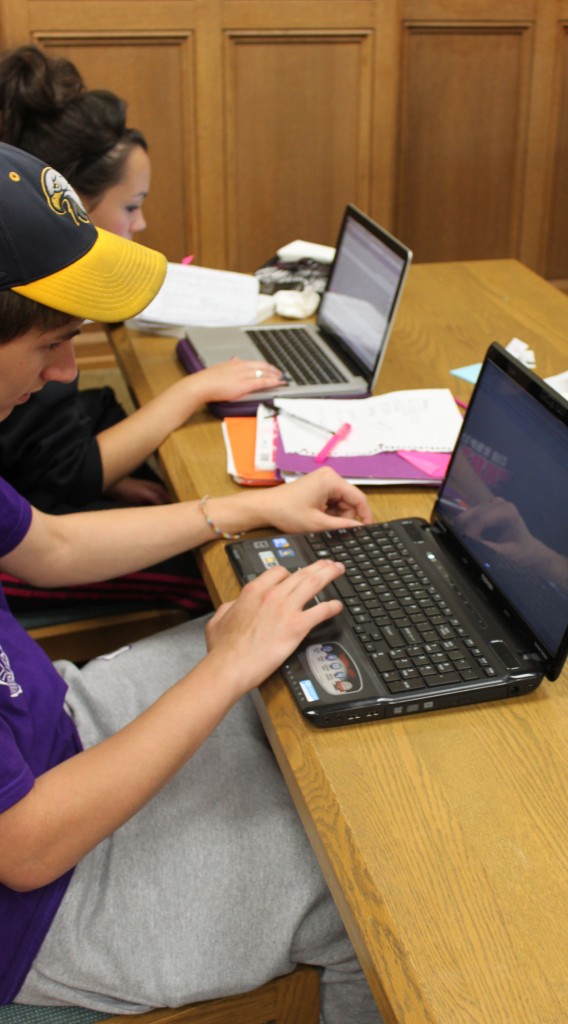It’s never too late to change the way you learn, according to a recent New York Times article.
The article, “Forget what you know about good study habits,” explains that recent research supports the idea that some study strategies work better than others.

For example, the research show that studying in the same place all the time is not as effective as moving around and changing study locations.
Academic Support Center Director David Moore said they usually tell students to find a good, quiet location so they can completely focus.
“But this research is pretty interesting,” Moore said. “If you’re doing things in different places, your mind might make better connections.”
After a year of figuring out what works and what doesn’t, sophomore Julie Rech has developed different ways of studying.
“I study in small chunks,” she said. “I also like to study with other people.”
Rech said she also likes to vary where she studies.
“I try to switch between studying in the kitchen and at my desk,” she said. “I usually try not to study on my bed because then I’ll fall asleep.”
Tips for successful studying
Something to practice before the all-important final exams is to start spacing study sessions apart.
“Hurriedly jam-packing a brain is akin to speed-packing a cheap suitcase, as most students quickly learn,” the New York Times article said. “It holds its new load for a while, then most everything falls out.”
Moore agreed with this statement and added, “Do a little bit of something every day from class if you can. Especially since it’s still only the first few weeks of school, you don’t have a lot of exams or papers yet.”
If you’re studying a subject you dislike, it can be more difficult to find the motivation to study, but Moore gave some tips.
“Make some sort of connection with the class. It may be talking to the professor more or finding a person in class to study with,” Moore said. “The [subject] you like the least is the best to study first.”
He said when a student saves his or her least favorite subject to study last, it is later at night, the student is more burnt out, and the motivation to study is even less than usual.
The New York Times article discusses research that says there is no such thing as a distinct “left-brain” or “right-brain” learner nor a visual or auditory learner.
Moore said how to study can be a controversial topic, but what’s more important is that the individual is open to learning in all different sorts of ways.
“We always tell people don’t just study one way. We want you to be active in the way you study,” he said. “Write things down, say things out loud, study with someone else, make some visual things, make note cards…Try something different instead of just looking in your book and reviewing your notes.”
Change study habits early in college
Anyone at any age can change their study habits, but freshman year of college is when the greatest changes can occur.
“When you come to college, it’s a perfect time to think about what you can do [to study] differently,” Moore said.
Freshman Mariah Kubic said while studying in the library that she wants to break her bad habits of procrastination early on in college.
“I’m trying to do a little bit here and there,” Kubic said.
If a student isn’t sure what he or she is doing wrong while studying, the Academic Support Center offers a free test called the Learning and Strategies Inventory.
“It suggests areas of the strengths and weaknesses [the student] has and suggests things they can work on,” Moore said. “Like if they’re not good with time management or with test taking, that is something we can help with.”
Valerie Turgeon can be reached at turg4604@stthomas.edu.

Great job Val! I looked for your article. The article was very informative-I’m actually going to try moving locations once in awhile.